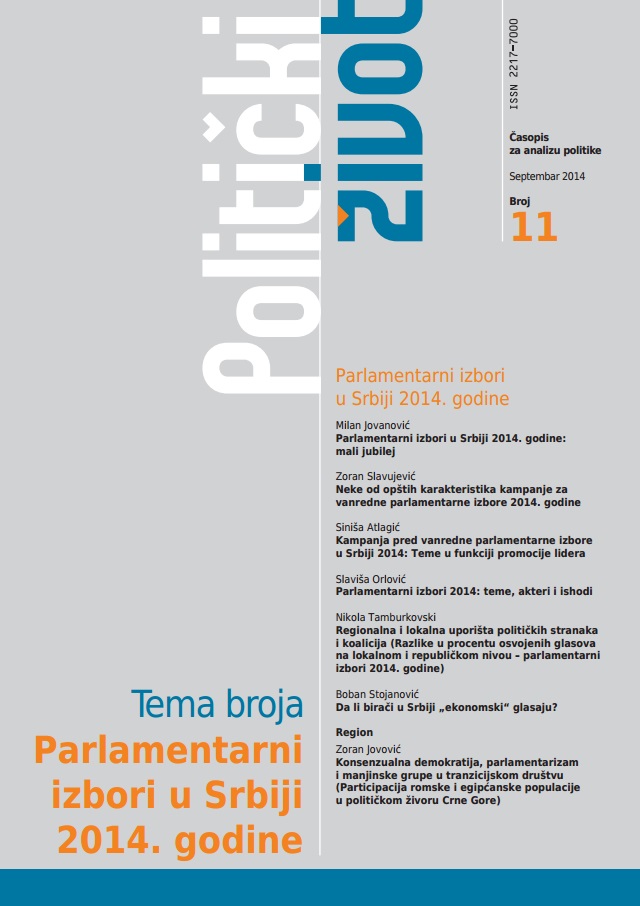Parlamentarni izbori 2014: kontekst, akteri i ishodi
Parliamentary elections in 2014 – context, actors and outcomes
Author(s): Slaviša OrlovićSubject(s): Electoral systems, Politics and communication
Published by: Fakultet političkih nauka Univerziteta u Beogradu
Keywords: Electoral coalitions; electoral campaign; dominant party
Summary/Abstract: In this paper we analyze the reasons for the extraordinary parliamentary elections in Serbia, its political context and the most important issues. We begin with insight in the major competitors, structure of candidate lists and composition of electoral coalitions, with special attention devoted to parties of national minorities. This is followed by analyses of government formation process and the major losers of these elections. 2014 elections in Serbia were political purgatory and scaffold. Three parliamentary and relevant parties did not make over the 5% threshold (DSS, URS and LDP), and only 4 coalitions and 3 minority lists entered the parliament. After these elections Serbia has party system with dominant party (SNS) and very weak opposition leading to lack of democratic balance and counterweight which could be damaging for further democratic consolidation process. Party systems with clientelistic electoral competition instead of programmatic one, has weaker chances for consolidation of democracy.
Journal: Politički život
- Issue Year: 2014
- Issue No: 11
- Page Range: 37-47
- Page Count: 11
- Language: Serbian

